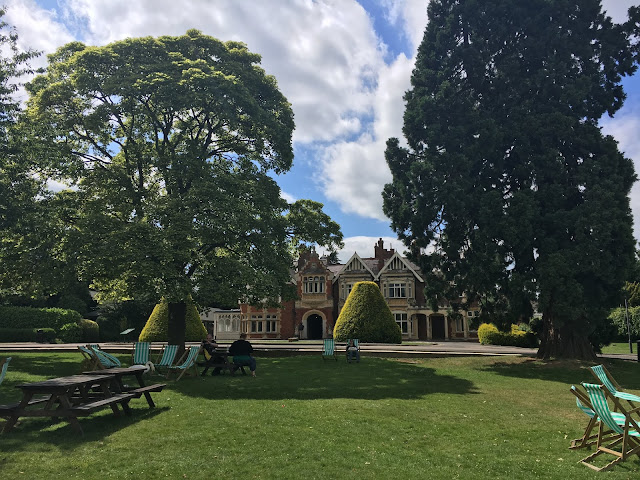After our class visit to The National Museum of Computing some of us ventured on to Bletchley Park. The location of the codebreakers and all of the vital and top secret work that was done there echoes the value of relocating collections for safekeeping during times of conflict.
Due to London being such a target, and this new tactic of fighting a war through decoding of messages and information, removing such work to the country was imperative.
The cultural and historical significance of the collections of museums, libraries, and archives that were moved to remote locations elsewhere in the UK mirrors this concept of removing what is deemed high-priority from high risk zones.
The top secret nature of what went on at Bletchley Park during the war echoes how the stores of collections were kept secret so as to increase their safety in case of invasion.
The Library and Archives at Bletchley Park itself has also provided for a very enriching experience for its contemporary visitors. The oral histories, reproduced images, and exhibitions create an atmosphere that allows us to image what the lives were like for those who were either stationed or traveled to this safer location for such high-priority secret work.
 |
| Heading towards the Mansion at Bletchley Park |
Due to London being such a target, and this new tactic of fighting a war through decoding of messages and information, removing such work to the country was imperative.
The cultural and historical significance of the collections of museums, libraries, and archives that were moved to remote locations elsewhere in the UK mirrors this concept of removing what is deemed high-priority from high risk zones.
 |
| Approaching the Mansion across the lawn |
The top secret nature of what went on at Bletchley Park during the war echoes how the stores of collections were kept secret so as to increase their safety in case of invasion.
The Library and Archives at Bletchley Park itself has also provided for a very enriching experience for its contemporary visitors. The oral histories, reproduced images, and exhibitions create an atmosphere that allows us to image what the lives were like for those who were either stationed or traveled to this safer location for such high-priority secret work.
Comments
Post a Comment